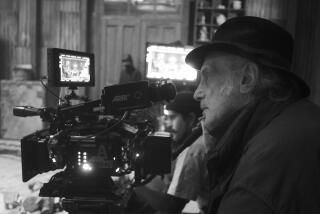‘The Lacuna’ by Barbara Kingsolver
Frida Kahlo, Diego Rivera, Lev Trotsky. The Mexican painter whose flamboyant art and mangled body continue to nourish a multimedia industry. The adored husband 21 years her elder, myth-making muralist and Mexican national hero. And the man on the lam whom this idealistic pair sheltered under their roof: a slight, bearded, twinkle-eyed legend, one of the troika who together dreamed up and then led to victory the Bolshevik Revolution. Trotsky was Lenin’s treasured theoretician and comrade to Stalin until double-crossed by that lethal paranoiac. Hounded into exile, he became an emblem of humane communism to leftists the world over. The Great Might-Have-Been.
Given the current vogue for books that drape fictional flesh over the factual remains of Famous People, a novel starring any one of these figures would promise a solid hit. Put all three at the center of a 500-plus-page saga by Barbara Kingsolver, beloved author of “The Poisonwood Bible,” and you can watch a high drive into the grandstand.
“The Lacuna” gets the inside scoop on the Fiery Threesome thanks to an entirely fictional hero whose diaries form the bulk of the novel. Harrison Shepherd is the offspring of an absent American father and a chill-hearted Mexican-born flapper on her way down the social scale rung by rung, lover by lover. Emerging self-educated and perfectly bilingual from the Dickensian ordeal of his childhood, the lad lands a job in Rivera’s politically and erotically charged bohemian household. As pastry cook, typist, general confidant and taker of dictation, he’s found a home.
After some lyrical but unconvincing early scenes, the first half of the novel builds to page-turning tension. Fiction based on the lives of the famous has a special kind of suspense: One recalls more or less what has to happen (a Stalinist agent will hack the revolutionary’s skull with an ice ax) but not the exact timing, or the details (how the killer weaseled his way past walls and guards into the Riveras’ trust), or the motivations, the hopes and fears, the devastation of those touched by the murder. That is the novelist’s job.
“Lev held his hands away from his face and stared at the blood. There was so much of it. His white cuffs were soaked like bandages. It dripped onto the papers, this morning’s typed drafts.” After the death of father-figure Trotsky, Shepherd flees to the States, fetching up at random in Asheville, N.C. He has no real idea of what to do next.
Nor does the novel, it seems, for the next few chapters. Shepherd is a sensitive observer and a chronicler. And an avoider. Absent his close contact to “real” action figures, the developments of Shepherd’s miraculous rise as a bestselling author and his coping with his homosexuality are only intermittently engaging. But a rescuer has been waiting in the wings all along. Violet Brown, a spinster and a “force: small, unadorned, unapologetic,” comes down from the mountains to become Shepherd’s secretary, then housemate, defender against the overwhelming forces of the Red Scare, and finally the compelling voice that finishes “The Lacuna.”
A lavishly gifted writer, Kingsolver has not let success breed complacency. This novel, her first in nine years, feels prodigiously researched. Its confident pacing mines roughly a quarter-century in two countries, landing the hero in the midst of events that cast long shadows toward our own time: the attack on defenseless Depression-era Bonus Marchers by Gen. Douglas MacArthur’s cavalry, the inspiring ingenuity of the home front during World War II, the subsequent creep to power of the House Un-American Activities Committee. But these compressed scenes sometimes resemble sidebars in a U.S. history text. And in order to cover broader background -- the history of the Aztecs’ subjugation by Cortez, or power plays in the early Soviet Union -- Kingsolver resorts to lengthy expository dialogue, with naive Shepherd playing Candide to Trotsky and other Panglosses met along the way. What saves these pages from pure artificiality is Kingsolver’s wonderful ear for the quirks of human repartee. “The Lacuna” is richly spiked with period language. Harken to Violet’s voice: “April . . . a joyful month if there ever was one, you’d think. Even a feather duster will lay an egg in April.”
For all of Violet’s spunk and Shepherd’s wryness, “The Lacuna” paints a sad and steady downward spiral. Tragedy rubs up against maudlin. And the title? Lacuna is Latin for a thing missing. Certainly there is no dearth of symbolic openings, holes and gaps -- including a lost notebook and Shepherd’s scarcely explored homosexuality -- scattered throughout. But there is no enigma. The good guys wear white hats, the villains black. This book grabs at the heartstrings, and you would give it to a 13-year-old without hesitation . . . except for that nagging problem of historical truth. Even a card-carrying leftie (a literal term from the ‘40s, once applied to my father) cannot swallow the airbrushed portrait of Trotsky, in reality a boundless egotist and architect of ruthless collectivization, as a social-democratic Santa Claus.
Maristed is the author of several books, including the novels “Broken Ground” and “Belong to Me.”
More to Read
The biggest entertainment stories
Get our big stories about Hollywood, film, television, music, arts, culture and more right in your inbox as soon as they publish.
You may occasionally receive promotional content from the Los Angeles Times.






